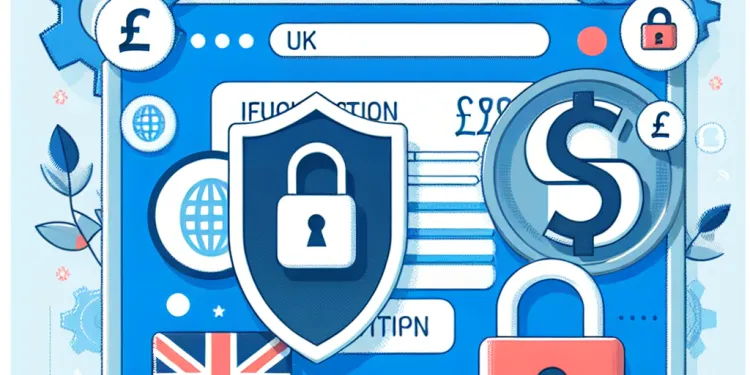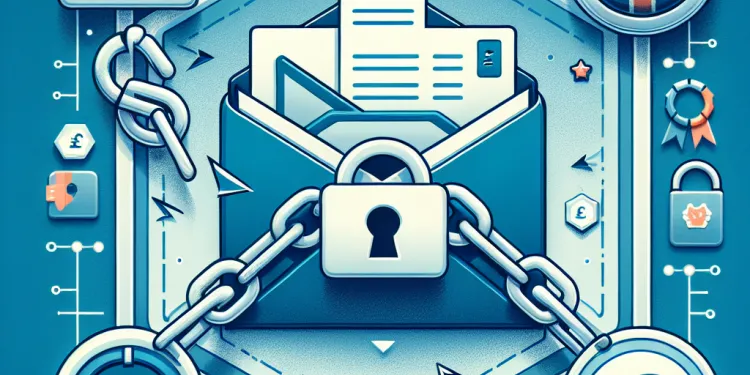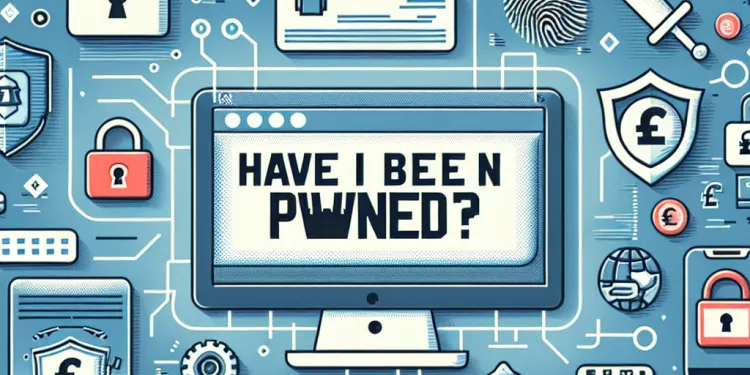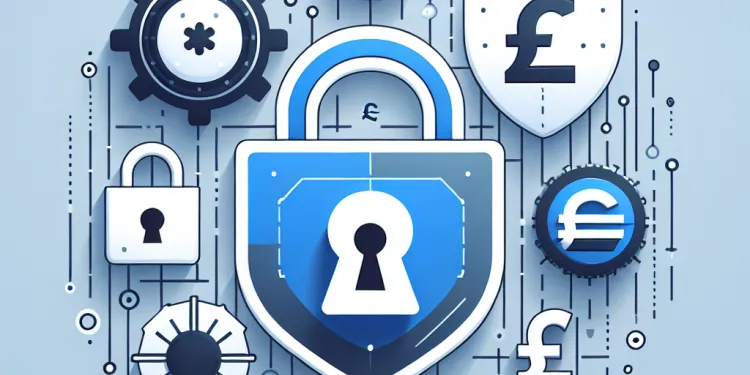
Find A Professional
More Items From Ergsy search
-

Are companies required to inform me if my data is breached?
Relevance: 100%
-

How does a breached company manage the situation?
Relevance: 94%
-

What is a data breach?
Relevance: 74%
-

Can I recover data once it has been breached?
Relevance: 73%
-

How can I find out if my data was part of a breach?
Relevance: 67%
-

How do I know if my personal information was part of a data breach?
Relevance: 63%
-

Are there penalties for water companies besides issuing refunds?
Relevance: 63%
-

Where can customers find updates on their water company's performance standards?
Relevance: 60%
-

When will the refunds be issued by the UK water companies?
Relevance: 60%
-

Which UK water companies are going to refund their customers?
Relevance: 58%
-

How much is being refunded in total by the UK water companies?
Relevance: 57%
-

What information do I need to provide to check for breaches?
Relevance: 57%
-

How many UK water companies are involved in the refund process?
Relevance: 57%
-

What type of information can be exposed in a data breach?
Relevance: 54%
-

What can I do if the water company doesn’t respond to my claim?
Relevance: 51%
-

Which UK water companies are going to refund their customers for poor performance?
Relevance: 50%
-

What is the first step to claim money back from my water company?
Relevance: 49%
-

Can customers appeal or discuss the refund amount with their water company?
Relevance: 47%
-

Which body is responsible for enforcing refunds by UK water companies?
Relevance: 46%
-

Who regulates the performance and compliance of UK water companies?
Relevance: 46%
-

What criteria were used to determine the refunds for UK water companies?
Relevance: 45%
-

Do these refunds mean water companies have increased their rates fraudulently?
Relevance: 43%
-

How can I claim money back from my water company?
Relevance: 42%
-

What should I do if I find my information in a data breach?
Relevance: 42%
-

What role do water companies play in sewage pollution?
Relevance: 39%
-

Can I prevent my data from being included in a breach?
Relevance: 36%
-

Will I need someone to accompany me for the test?
Relevance: 32%
-

Why are emails often targeted in data breaches?
Relevance: 31%
-

How often should I check for data breaches?
Relevance: 30%
-

Is this the first time UK water companies are being ordered to refund customers for poor performance?
Relevance: 28%
-

Are the refunds part of a regulatory action?
Relevance: 28%
-

Will all customers of these UK water companies receive refunds?
Relevance: 27%
-

What is Have I Been Pwned?
Relevance: 23%
-

Greenwashing Lawsuits Increase as Environmental Claims Face Legal Checks
Relevance: 23%
-

What role do password managers play in data breach prevention?
Relevance: 22%
-

How are customers being informed about their eligibility for refunds?
Relevance: 21%
-

What is the role of a water regulator in my claim?
Relevance: 18%
-

What agencies monitor and regulate sewage pollution in the UK?
Relevance: 15%
-

What should customers do if they have further questions about refunds?
Relevance: 13%
-

How does insolvency impact pension funds?
Relevance: 13%
Understanding the Breach
When a company in the UK experiences a data breach, the initial step is to understand the scope and nature of the breach. This involves determining the cause of the breach, identifying the affected systems or data, and evaluating the potential impact on customers and stakeholders. Companies often deploy a dedicated incident response team to handle the initial stages of the breach management process.
Containment and Mitigation
Once the breach is confirmed, the company must act swiftly to contain it. This may involve isolating compromised systems, shutting down certain network segments, or applying patches to vulnerabilities. Ensuring the breach does not spread further is crucial in limiting potential damage. Concurrently, efforts are made to mitigate the risks associated with the breach, such as unauthorized access or data leakage, through strengthened security measures and monitoring.
Internal and External Communication
Effective communication is pivotal during a data breach. Internally, staff and key stakeholders must be informed about the breach, its implications, and the actions being taken. Externally, companies are required to notify affected customers, partners, and regulatory bodies. In the UK, this includes notifying the Information Commissioner’s Office (ICO) within 72 hours of becoming aware of the breach, as per GDPR regulations, if there is a risk to data subjects.
Assessment and Investigation
An in-depth investigation is conducted to understand the breach's full impact. Forensic experts may be employed to examine compromised systems, gather evidence, and establish how the breach occurred. This investigation helps inform future security improvements and ensures all loopholes are addressed. Furthermore, the company must assess the breach's legal implications and manage any potential legal fallout or compliance issues.
Recovery and Restoration
After containment and investigation, attention turns to recovery. This involves restoring systems and operations to normal, ensuring that any breached data is securely recovered or secured. Companies often review and upgrade their cybersecurity infrastructure and protocols to prevent future incidents. Employee training programs may also be updated to include lessons learned from the breach.
Public Relations and Reputation Management
The breach's impact on a company’s reputation can be significant. Strategic public relations efforts are required to manage the company's image post-breach. Open and transparent communication with customers and the public is vital in rebuilding trust. Companies might issue public statements, hold press conferences, and engage directly with customers to demonstrate accountability and commitment to improved security.
Review and Improvement
Following the resolution of the breach, a comprehensive review is conducted to evaluate the response's effectiveness. This includes analyzing the incident response strategies and identifying areas for improvement. Feedback is collected from all stakeholders involved in the breach management process, and lessons learned are documented to enhance future readiness and resilience against cyber threats.
Understanding the Breach
When a company in the UK has a data breach, the first thing to do is find out what happened. The company needs to know how the breach happened, which systems or data were affected, and how it might hurt customers. Usually, a special team is called to manage this problem and make a plan.
Containment and Mitigation
After the breach is confirmed, the company needs to act fast to stop it from getting worse. This might mean fixing broken systems, shutting down parts of the network, or fixing security problems. It's very important to stop the breach from spreading. At the same time, the company works to stop any more risks, like someone else getting unauthorized access to the data.
Internal and External Communication
Talking clearly is very important during a data breach. Inside the company, workers and important people need to know about the breach and what is being done. Outside the company, customers and partners have to be told. In the UK, companies must tell the Information Commissioner’s Office (ICO) within 72 hours if there is a risk to people’s data.
Assessment and Investigation
The company needs to look closely at what happened. Experts might check the systems to see how the breach happened and collect evidence. This helps the company know how to be safer in the future. They also need to think about any legal problems that might happen because of the breach.
Recovery and Restoration
After stopping the breach, it's time to fix things. The company needs to get everything back to normal. They should also make sure all data is safe. Often, companies will also make their security systems better and train workers on what to do next time.
Public Relations and Reputation Management
A breach can make a company look bad to the public. It's important to talk honestly with customers to win back their trust. Companies might make public statements or have press talks to show they are responsible and working to be better.
Review and Improvement
When the breach problem is solved, the company needs to look back and see how things went. They should find out what worked and what didn’t. Feedback from everyone involved is important to help make things better in the future.
Frequently Asked Questions
What is the first step a breached company should take?
The first step is to contain the breach to prevent further data loss. This may involve isolating affected systems and networks.
Who should be notified first in the event of a data breach?
Key stakeholders such as the incident response team, executive management, and legal counsel should be notified immediately.
When should law enforcement be contacted?
Law enforcement should be contacted if the breach involves criminal activities, such as theft or hacking.
How should a company assess the extent of a breach?
Engage cybersecurity experts to conduct a thorough investigation and assessment of the breach to understand its scope and impact.
What role does communication play during a data breach?
Clear and transparent communication with affected parties, regulators, and the public is crucial to maintaining trust and managing reputational damage.
What internal teams should be involved in managing a breach?
Involve IT, legal, communications, risk management, and finance teams to coordinate an effective response.
How should a company notify affected customers?
Notify affected customers promptly, providing clear information about what happened, what data was involved, and how they can protect themselves.
What is the importance of a post-breach review?
A post-breach review helps identify what went wrong and what improvements can be made to prevent future breaches.
How can a breached company recover compromised data?
Recover data from backups if available, and assess the integrity of restored data to ensure no further compromise.
Should a company offer compensation to those affected by a breach?
Depending on the severity of the breach, offering compensation such as credit monitoring or identity theft protection can be appropriate.
What legal obligations do companies have after a data breach?
Companies may be required to notify regulatory bodies and individuals affected by the breach, subject to data protection laws.
Why is employee training important post-breach?
Training helps employees recognize potential threats and reinforces security protocols to prevent future incidents.
How can a company improve its cybersecurity posture post-breach?
Implement stronger security measures, conduct regular vulnerability assessments, and update incident response plans.
What documentation is required during a breach response?
Document all actions taken, communications, investigations, and recovery efforts to support legal compliance and future reviews.
Can insurance help mitigate the financial impact of a breach?
Cyber insurance can help cover costs related to breach investigations, legal fees, and compensations.
What is the role of a third-party cybersecurity firm after a breach?
They provide expert guidance on containment, investigation, and strengthening security frameworks.
How long does the recovery process typically take after a breach?
The duration varies greatly depending on the breach's complexity and the measures required to restore security.
What is the benefit of public transparency during a data breach?
Transparency helps maintain trust, shows accountability, and meets regulatory requirements.
How should a company test its incident response plan effectiveness?
Conduct regular drills and simulations to ensure the plan addresses potential threats effectively.
What should a company do with vulnerable data after a breach?
Secure or remove compromised data, ensure proper encryption, and review access controls to protect it.
What should a company do first if they are hacked?
The first step is to stop the data leak so no more information is lost. This might mean keeping the affected computers and networks away from others.
Who should you tell first if there is a data problem?
If data gets out and it shouldn’t, it is called a data problem.
You should tell someone very quickly.
Here’s who to tell first:
- Your boss at work.
- The person in charge of data at your workplace.
If you need help, use a computer or phone tool to send a message fast.
Important people need to know right away. Tell the team fixing the problem, the bosses, and the lawyers.
When should you call the police?
If someone is hurt, in danger, or if something bad is happening, you should call the police.
Use a phone to call the police for help. They can come quickly to keep everyone safe.
If someone is stealing or hacking, call the police. They can help when bad things happen.
How can a company check how bad a security problem is?
When a company wants to find out how serious a security problem (or breach) is, they can follow these steps:
- Look for the Problem: Find out what went wrong. Check how it happened and where.
- Check What Was Affected: See what information or things were affected by the problem.
- Ask for Help: Use tools or ask experts who know about security to help understand the problem better.
- Write Down What You Find: Make notes about what you discover. This will help remember everything clearly.
- Keep People Informed: Let people in the company know what you find out so they can help fix the problem.
Companies can use pictures, diagrams, or videos to help understand better. Talking to someone who understands security can also be very helpful.
Ask cybersecurity experts to help look into the problem. They can find out what happened and how big the issue is.
Why is talking important when data is stolen?
When personal information is taken, it is called a data breach. Talking helps to explain what happened and what will be done next. This can make people feel safer. Some tools that might help are videos or pictures to better understand the information.
It's important to talk clearly and openly with everyone involved, the people in charge, and the public. This helps everyone trust each other and stops any damage to how people see you.
Who helps inside the company when a problem happens?
When something goes wrong, like a hacker getting into computers, some people in the company need to help. Here are who should help:
- IT Team: They fix computer problems.
- Security Team: They keep everything safe.
- Legal Team: They know the rules and laws.
- PR Team: They talk to the public or the press.
- Management: They decide what to do next.
If reading is hard, you can ask someone to read the list to you. You can use pictures or videos to help you understand, too.
Get help from these teams to work together: the people who know about computers, the legal team, the people who talk to others, the team who finds problems, and the people who handle money. They need to work together to do a good job.
How can a company tell customers about a problem?
When there is a problem, a company needs to tell its customers. Here's how they can do it:
- Send a letter or an email directly to the customers.
- Make a phone call to explain the issue.
- Put information on their website or social media.
It is important to use simple words. Be clear about what happened and what the company will do to fix it.
Tell the people quickly if their information was affected. Explain what happened, what information was involved, and how they can keep themselves safe.
Why is a post-breach review important?
A post-breach review is important because it helps us understand what went wrong when something bad happened, like a data breach. It helps us learn from mistakes and stop them from happening again.
To make it easier, we can:
- Look at what happened step by step.
- Use simple words and pictures to explain.
- Ask for help from tools like spellcheckers or speech-to-text for writing.
- Work with a friend or teacher to understand better.
A post-breach review helps find out what went wrong and how to stop it from happening again.
How can a company fix stolen data?
If a company finds out that someone took their data, they need a plan to fix it. Here are steps they can take:
- Find the problem: Look for what happened and how. Good computer programs can help find the problem.
- Stop the bad people: Make sure to close any ways that let the bad people in.
- Tell people: Let your workers and customers know about the problem so they can be careful too.
- Fix the data: Try to get back any lost data. Backup copies can help with this.
- Learn from it: See what went wrong and try to stop it from happening again. Training and stronger passwords can help keep data safe.
These steps can help the company feel better and make sure their data is safe in the future.
Get back lost data from backups if you have them. Check the data you got back to make sure it is safe and not broken.
Should a company pay people if their information gets stolen?
Sometimes, companies lose people's information. This is called a 'breach'. When this happens, people could get upset or worried.
The company might need to give money or help to these people. This is called 'compensation'. It can show that the company is sorry and wants to make things better.
If you find this hard to read, try using pictures or watch videos that explain it better.
If the breach is really bad, it can be a good idea to help by giving people credit monitoring or identity theft protection.
What must companies do if they lose customer information?
If a company loses or leaks your personal information, they must follow some rules:
- They must tell you quickly if your information is at risk.
- They should explain what happened and what they are doing to fix it.
- They need to tell the right authorities about the breach.
If you want more help, you can:
- Ask a friend or family member to explain it.
- Use apps that read text out loud.
- Look for videos that explain data breaches.
Companies have to tell the right people if something goes wrong with personal data. This is because of rules about keeping data safe.
Why is it important to train workers after a security problem?
Training workers helps them learn how to keep the company safe.
After a security problem, training helps stop it from happening again.
When workers know what to do, everyone can feel safer.
Tips to help:
- Use simple words to teach new things.
- Show videos to explain ideas.
- Practice what you learn with fun activities.
Training helps workers see danger and follow safety rules to stop problems from happening again.
How can a company get better at cybersecurity after a break-in?
If a company has a security problem, it can do things to stop it from happening again.
- Learn from what happened and fix the problems.
- Use strong passwords and change them often.
- Keep computer programs up to date.
- Train workers to spot tricky emails or messages.
- Use tools to clean and protect computers and data.
Companies can work with experts who know a lot about keeping data safe.
It's important to check security often and make it better each time.
Make security stronger, check for problems often, and keep plans ready for when something goes wrong.
What papers do you need if something goes wrong?
If something bad happens, like someone breaking into a computer, you need to have certain papers ready. These papers help you understand what happened and what to do next.
Here are some tips to help:
- Make a list of all the important papers you need.
- Use pictures or symbols to help remember the steps.
- Ask someone for help if you're not sure what to do.
Write down everything you do. This includes any talks, checking things, and fixing problems. This helps you follow the rules and look back later if needed.
Can insurance help with the money problems from a breach?
Insurance can help pay for money problems if something bad happens, like a breach.
Here are some ways insurance might help:
- Pay for fixing the problem
- Help with legal costs
- Cover lost money
If you want to learn more, ask for help. You can talk to someone who knows about insurance, like an insurance agent. They can explain things in a way that is easy to understand.
Cyber insurance is like a safety net. It helps pay for things if something goes wrong online. It can help with:
- Finding out what happened if there is a problem.
- Paying for a lawyer if you need one.
- Giving money to people if they are hurt or upset.
Here are some tips to make it easier to understand:
- Use simple words and short sentences.
- Look at pictures or videos that explain the topic.
- Ask a friend or adult to help you read and explain.
What does a cybersecurity company do after a data breach?
When a company gets hacked, they might hire a special team to help. This team fixes problems after a hack.
Here's what they do:
- Find out how the hack happened.
- Stop the hack from happening again.
- Fix and protect the computers and data.
- Help people in the company stay safe online.
Helpful tools:
- Special software to keep data safe.
- Advice on making strong passwords.
They give expert help on how to keep things safe, look into problems, and make security stronger.
How long does it take to get better after a data breach?
The time it takes can be very different. It depends on how big the problem is and what we need to do to make things safe again.
Why is it good to talk openly when there is a data problem?
Talking openly helps everyone understand the situation.
It builds trust with people involved.
Sharing information can help fix the problem faster.
Using pictures or simple tools can make it easier to follow the updates.
Being open helps people trust us. It also shows we can take responsibility and follow rules.
How can a company check if its incident response plan works well?
Practice often to make sure everyone knows what to do if something bad happens.
What should a company do with important data after a security problem?
If a company's data is at risk, they should:
- Quickly fix the problem and stop the data from leaking.
- Tell people who might be affected about the problem.
- Check and fix weak spots in their security system.
- Change passwords and use strong ones.
- Make a plan to keep data safe in the future.
Tools like password managers and security apps can help keep data safe.
Keep your important information safe. Make sure it can't be seen or used by people who shouldn't see it. Lock it up with a special code and check who can open it.
Useful Links
- Ergsy carfully checks the information in the videos we provide here.
- Videos shown by Youtube after a video has completed, have NOT been reviewed by ERGSY.
- To view, click the arrow in centre of video.
- Most of the videos you find here will have subtitles and/or closed captions available.
- You may need to turn these on, and choose your preferred language.
- Go to the video you'd like to watch.
- If closed captions (CC) are available, settings will be visible on the bottom right of the video player.
- To turn on Captions, click settings .
- To turn off Captions, click settings again.
More Items From Ergsy search
-

Are companies required to inform me if my data is breached?
Relevance: 100%
-

How does a breached company manage the situation?
Relevance: 94%
-

What is a data breach?
Relevance: 74%
-

Can I recover data once it has been breached?
Relevance: 73%
-

How can I find out if my data was part of a breach?
Relevance: 67%
-

How do I know if my personal information was part of a data breach?
Relevance: 63%
-

Are there penalties for water companies besides issuing refunds?
Relevance: 63%
-

Where can customers find updates on their water company's performance standards?
Relevance: 60%
-

When will the refunds be issued by the UK water companies?
Relevance: 60%
-

Which UK water companies are going to refund their customers?
Relevance: 58%
-

How much is being refunded in total by the UK water companies?
Relevance: 57%
-

What information do I need to provide to check for breaches?
Relevance: 57%
-

How many UK water companies are involved in the refund process?
Relevance: 57%
-

What type of information can be exposed in a data breach?
Relevance: 54%
-

What can I do if the water company doesn’t respond to my claim?
Relevance: 51%
-

Which UK water companies are going to refund their customers for poor performance?
Relevance: 50%
-

What is the first step to claim money back from my water company?
Relevance: 49%
-

Can customers appeal or discuss the refund amount with their water company?
Relevance: 47%
-

Which body is responsible for enforcing refunds by UK water companies?
Relevance: 46%
-

Who regulates the performance and compliance of UK water companies?
Relevance: 46%
-

What criteria were used to determine the refunds for UK water companies?
Relevance: 45%
-

Do these refunds mean water companies have increased their rates fraudulently?
Relevance: 43%
-

How can I claim money back from my water company?
Relevance: 42%
-

What should I do if I find my information in a data breach?
Relevance: 42%
-

What role do water companies play in sewage pollution?
Relevance: 39%
-

Can I prevent my data from being included in a breach?
Relevance: 36%
-

Will I need someone to accompany me for the test?
Relevance: 32%
-

Why are emails often targeted in data breaches?
Relevance: 31%
-

How often should I check for data breaches?
Relevance: 30%
-

Is this the first time UK water companies are being ordered to refund customers for poor performance?
Relevance: 28%
-

Are the refunds part of a regulatory action?
Relevance: 28%
-

Will all customers of these UK water companies receive refunds?
Relevance: 27%
-

What is Have I Been Pwned?
Relevance: 23%
-

Greenwashing Lawsuits Increase as Environmental Claims Face Legal Checks
Relevance: 23%
-

What role do password managers play in data breach prevention?
Relevance: 22%
-

How are customers being informed about their eligibility for refunds?
Relevance: 21%
-

What is the role of a water regulator in my claim?
Relevance: 18%
-

What agencies monitor and regulate sewage pollution in the UK?
Relevance: 15%
-

What should customers do if they have further questions about refunds?
Relevance: 13%
-

How does insolvency impact pension funds?
Relevance: 13%